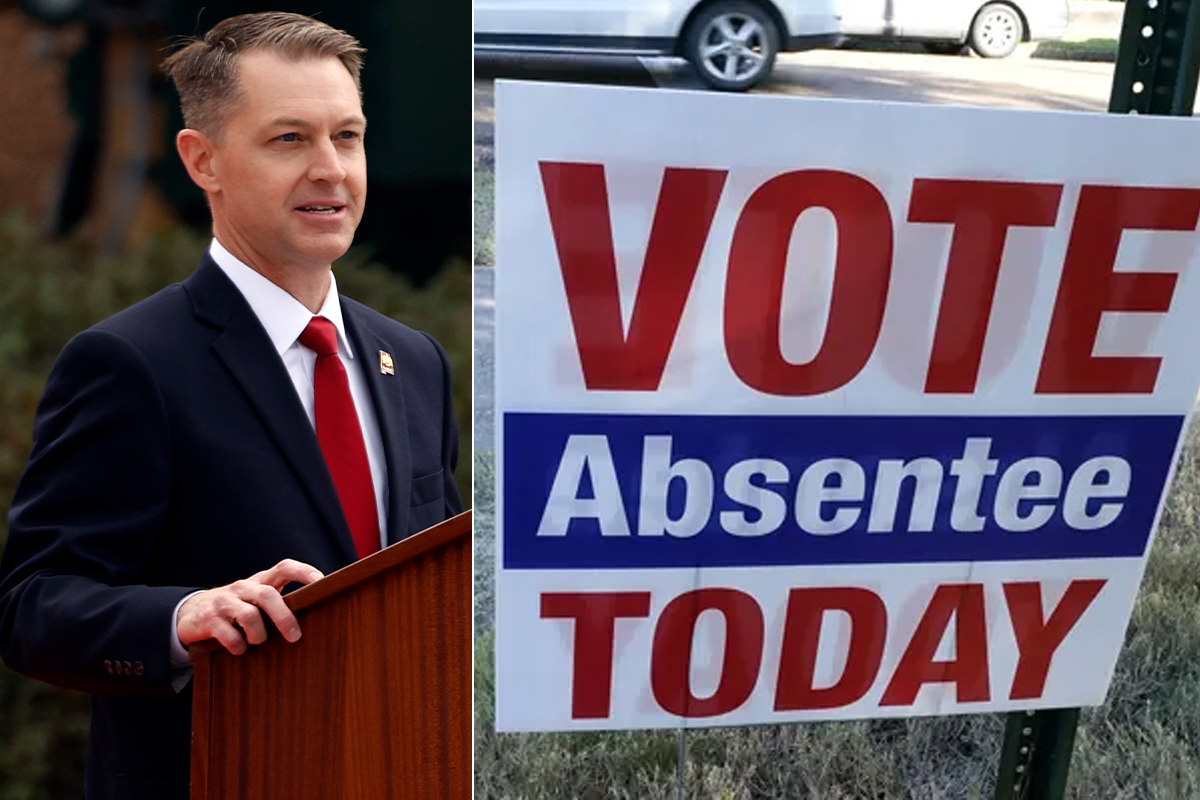MONTGOMERY — Legislation establishing criminal penalties for certain types of absentee ballot assistance died in the Senate after never making it on the calendar for a vote in the last days of the session.
House Bill 209 (HB209), sponsored by State Rep. Jamie Kiel (R-Russellville), aimed to crack down on ballot harvesting, a practice whereby political operatives collect absentee ballots from voters and drop them off at polling places or election sites.
The bill still had to pass both the Senate and the House since it was amended in a Senate Committee. Tuesday was the last day of the legislative session.
On Tuesday, Alabama Secretary of State Wes Allen told 1819 News that he had yet to get "a clear answer from the Senate Pro Tem" on why the legislation never made it to the Senate floor.
"I want to thank Rep. Kiel and Sen. (Garlan) Gudger for carrying HB209. I want to thank the Speaker, the House Republican Caucus, and the majority of Republican Senators who supported this legislation. Unfortunately, despite immense support in both the House and Senate, the 2023 Regular Session of the Alabama Legislature adjourned without ending the practice of ballot harvesting in this state," Allen said. "As a result, ballot harvesting will likely remain a permissible practice in our state during the 2024 Presidential Election. The legislation advanced through the Alabama House of Representatives overwhelmingly and easily passed (a) Senate committee. It begs the question of why the bill never reached the Senate floor. So far I have not received a clear answer from the Senate Pro Tem."
The legislation passed the House 76-28 on May 4th.
Senate President Pro Tem Greg Reed (R-Jasper) told reporters on Tuesday there were several different pieces of legislation that had passed the House but didn't make it onto the Senate floor "primarily because there were questions, there were conflicts, there were issues, maybe unintended consequences that had been discussed."
"I think a lot of those many members of the body felt like those particular pieces of legislation needed some more review," Reed said. "I don't know that those pieces of legislation are gone from discussion by any means. I think they will very much be topics that we'll be once again standing here talking about in the coming months and in the next session."
Reed said last week, "I think there's a lot of pro and con related to [House Bill 209]."
"No one wants people from outside Alabama coming here, spending a lot of money trying to have influence with our electoral process," Reed said. "At the same, in thinking through that, we don't want to throw a net so large that it winds up being a difficulty for someone just trying to help their family member or their neighbor in the voting process, so I think there's ongoing discussion around that. I think that legislation has been brought forward for all the right reasons."
Kiel told 1819 News on Tuesday, "Just inability to get [the bill] on the calendar for today has killed it for the year."
"I hated that because we've thought all along we had the votes to pass the bill," Kiel said. "We had the support all along in the Senate."
The amendment to the legislation in the Senate Committee exempted persons assisting blind and disabled voters and voters who can't read or write from any criminal penalties. It also changed the penalties for those who order, request, collect, prefill, obtain or deliver an absentee ballot application or absentee ballot in addition to their own to a Class A misdemeanor rather than a Class D felony.
The legislation would've also made it a Class C felony for anyone who knowingly pays a third party or for any third party to receive payment to distribute, order, request, collect, complete, obtain, prefill or deliver an absentee ballot application or absentee ballot for another person.
The language of the bill allows assistance from any family member to the second degree of kinship, a guardian or conservator, a resident of the household who has lived there more than six months, an employee designated by the Secretary of State, a designee of the local probate judge or a county absentee election manager.
To connect with the author of this story or to comment, email caleb.taylor@1819News.com.
Don't miss out! Subscribe to our newsletter and get our top stories every weekday morning.










